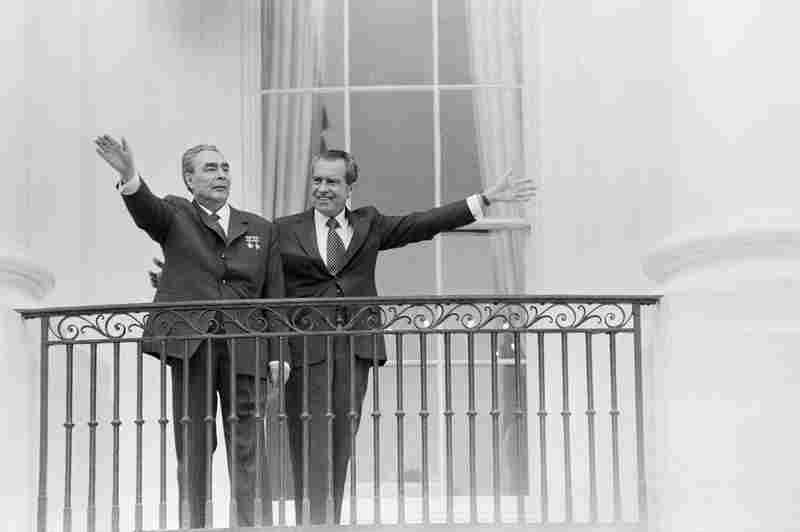As the History Department’s undergraduate students prepare their schedules for the Spring 2019 semester, they will find various new course offerings.
Among the new courses is an undergraduate seminar on Cold War Summits, to be taught by Dr. Michael Cotey Morgan. The course will focus on the major high-level meetings undertaken by international leaders during the Cold War, and it will offer students the opportunity to develop individual research projects that will draw heavily on primary sources.
By encouraging students to analyze the various summit meetings that took place during the Cold War, Dr. Morgan hopes to guide students towards considering larger questions about how countries engage in international relations.
“The broader purpose is to consider, ‘What’s the value of diplomacy more generally?’” Dr. Morgan said. “The Cold War is a great case study for this because there were so many of these summit meetings that took place and because we have rich, easily accessible documents on all of those cases.”
Students will spend each week during the first half of the semester analyzing specific summit meetings by examining primary and secondary sources together. During the second half of the semester, students will devote class time to workshopping their own twenty- to twenty-five page research papers on specific high-level meetings of their choosing.
“The first half will give them a sense of what they can write, what that sources are, what sorts of questions to ask,” Dr. Morgan said, “and then as we get closer to the end of the semester and the deadline for their final papers, it’ll be focused on producing drafts, analyzing the primary sources, editing each other’s work, and so on.”
The possibilities for students’ research papers are wide-ranging, as they will have access to a plethora of rich primary sources available both at Davis Library and online through government- and non-profit-sponsored digital archives. These collections include sources from the United States as well as translations of documents from the Soviet Union, China, Korea, Vietnam, and a variety of other Cold War players. Yet students need not be limited to translations.
“Depending on students’ linguistic abilities they can use documents in other languages,” Dr. Morgan said, noting the availability of French and German primary source volumes in Davis Library.
Dr. Morgan looks forward to guiding students through the process of undertaking an original research project. He expects students will find the writing process a challenging but rewarding one.
“It’s terrific to work with students and to see them doing the work of a professional historian,” he said. “Most students find it to be a challenge but I think they also, once they get to the end of the semester, derive a lot of satisfaction from having grappled with this intellectual challenge and succeeded.”
Dr. Morgan’s own research experience will undoubtedly prove a valuable resource for students stepping into Cold War summit documents for the first time. This year, he published his first book, The Final Act: The Helsinki Accords and the Transformation of the Cold War (Princeton University Press, 2018). Based on his doctoral dissertation, the book documents the 1975 Helsinki summit, which brought together representatives of thirty-five nations and proved a pivotal moment both in the Cold War and in the history of human rights.
“This phenomenon of Cold War summitry is something I’ve been thinking about for a while,” he said, “and it’ll be fun to help students think about that too.”
Yet Dr. Morgan’s own research was not his sole inspiration for designing this course. He also hopes such a course will help students make sense of and evaluate current international events.
“Summitry has been in the news a lot lately, if you think about President Trump meeting with Kim Jong-Un in Singapore or Vladimir Putin in Helsinki,” he said. “I think we can illuminate the present, what’s possible, what can be achieved, what can’t be achieved, what the risks might be today. We can understand some of those things by examining these past case studies.”
On the whole, Dr. Morgan looks forward to guiding students as they seek to understand Cold War summitry, not only for its importance in its specific historical moment but also as a means to grapple with major questions that carry enormous consequences.
“What we’re talking about in this class are fundamental questions about war and peace, and in some cases, especially when you’re talking about something like nuclear weapons, the fate of humanity,” Dr. Morgan said. “The stakes could not possibly be higher.”

